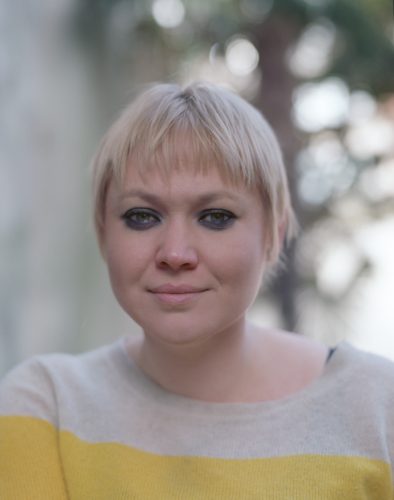As the UK government congratulates itself on its decision to expand UK fossil fuel exploration, something that is perceived internationally as disastrous, it seems timely to publish this latest piece from our green correspondent:
“We’re starting a journey. We want to understand how funeral plans are potentially fuelling climate breakdown.
This is a new campaign by the Good Funeral Guide which aims to help people who buy funeral plans better understand the environmental impact of their investment.
We’re going to start with some numbers:
According to the Financial Conduct Authority there are around 1.6 million funeral plans in existence, held by 26 regulated firms. This does not include those life insurance policies that cover funeral expenses.
Now, according to Funeral Solution Expert calculations, the cost of a funeral plan is between £1,400 and £4,400, depending on whether you opt for a basic or a higher level plan.
The average cost of a plan is £2,800. The total value of held plans is therefore, by our calculations, currently somewhere between £2.2 billion and £4.5 billion.
These plans are typically held by trusts and whole life funds, which spread the funds across a range of assets such as equities, infrastructure, credit, diversified growth and index-linked gilts.
Equities, diversified growth and credit are all exposed to fossil fuels, meaning that these asset classes are funding the extraction of and exploration for oil and gas. The burning of which is the predominant cause of the climate crisis.
Analysis by the Good Funeral Guide suggests that between 15% and 60% of a typical funeral plan is invested in equities.
Let’s say the average is 30%. Would that then mean the funeral planning industry currently has something like £1 billion of funds exposed to fossil fuels, contributing to the destruction of Earth’s life support systems?
Of course, not all of the £1 billion is invested in fossil fuel companies but it’s likely that the figure runs into tens of millions of pounds, at the very least.
How plan providers stack up
We’ve trawled the websites of some of the UK’s best known funeral plan providers for information about how they invest the money that people trust them with.
Golden Charter – around £459 million of Golden Charter’s funds are invested in global equities, diversified growth and multi-strategy credit, suggesting that potentially at least 35% of its £1.3 billion-fund is exposed to fossil fuels. It’s good that Golden Charter makes its investment information available in the form of annual reviews, however, the reviews lack granular detail about environmental impacts.
Golden Leaves – Golden Leaves funds are managed by the Golden Leaves Trust and according to its website these are invested in index-linked gilts. These are likely to be UK government bonds and are said to be as exposed to fossil fuels as the wider economy.
Golden Leaves website also states that some plans (zinc, silver and gold) when taken as fixed payment plans are used to buy a whole life insurance policy from SunLife. SunLife is part of the Phoenix Group, whose investments are currently exposed to fossil fuels. However, the business has published a plan to be net zero by 2050.
Open Prepaid – According to the company’s website, the Open Trust Fund invests in equities, which as we’ve learnt are directly exposed to fossil fuels. We were unable to find information about the breakdown of assets held.
Avalon Funeral Plans – Avalon Funeral Plans website appears to offer no information about the nature of its investments, other than to say that its trust invests through “recognised investment funds”. We can safely assume that there is some exposure to fossil fuels.
Ecclesiastical – Ecclesiastical’s funeral plans are held in an insurance policy which is linked to investments that could be exposed to fossil fuels, our research suggests.
Co-operative Funeralcare – according to our research, Funeralcare’s funeral plans are Royal London life insurance policies, which will be exposed to fossil fuels. However, Royal London has made the same commitment as Phoenix to be net zero on investments by 2050.
Dignity – Dignity’s website states that funeral plan money is held in the UK Funerals (2022) Trust. We were unable to find information about which assets this invests in, but we should assume exposure to fossil fuels. Dignity’s National Funerals Trust 2022 report shows potentially huge exposure to fossil fuels as equities and credit account for 74% of assets held.
Our summary
As we said at the start of this blog, we’re on a journey of understanding here. We welcome information from funeral planning companies that clarifies their funds’ exposure to fossil fuels.
If we have it wrong, we’ll correct the record. But we will accept no opaque comments. We want figures and percentages that deliver clarity to the funeral plan-buying public.
In summarising our research, we make the following four observations:
1. Funeral plans for gas-powered cremation funerals are funding climate change, as the end product or service is a fossil fuel-based process.
2. No funeral plan provider’s website FAQs section has a question about the environmental impact of their investments. This needs to change. All funeral plan providers should publish a public statement outlining their current environmental impact status, detailing the steps being taken to reduce exposure to harmful financial products.
3. Despite FCA regulation, funeral plan investments are incredibly opaque. The public will struggle to find any user-friendly information about the types of assets held and what they mean.
4. Most worryingly of all, no funeral plan provider has a green investment plan. Or if they do, they are doing a fantastic job of hiding it on their website.
Next steps
Thank you for reading this blog. The next steps are to apply pressure. And we can all do this.
We will be writing directly to all UK funeral plan providers once this blog is published, asking them to provide us with direct and up to date information that we can share with our readers.
If you are someone who holds a funeral plan to cover your future funeral costs, then please write to your plan provider and ask them for accurate and easy to understand information about their investments and the environmental impact involved. Ask how they are reducing their exposure to / investment in fossil fuels and the timescale involved. They have your money, and you have a right to ask them what they’re doing with it.
If you’re a funeral director – and an appointed representative to provide funeral plans – and feel you should be fully informed about the environmental impact of the funeral plans you offer, please write to your plan provider. We have a template letter here that you can download and use.
Join us on our journey to understand this opaque, multi-million – or billion – pound market, and if need be (it will be!) – to start pushing for change.
Let’s make sure funeral plans are what they are sold as; a way for people to plan for and pay in advance towards their own future funeral costs, not covert vessels for contributing to planetary destruction.”


